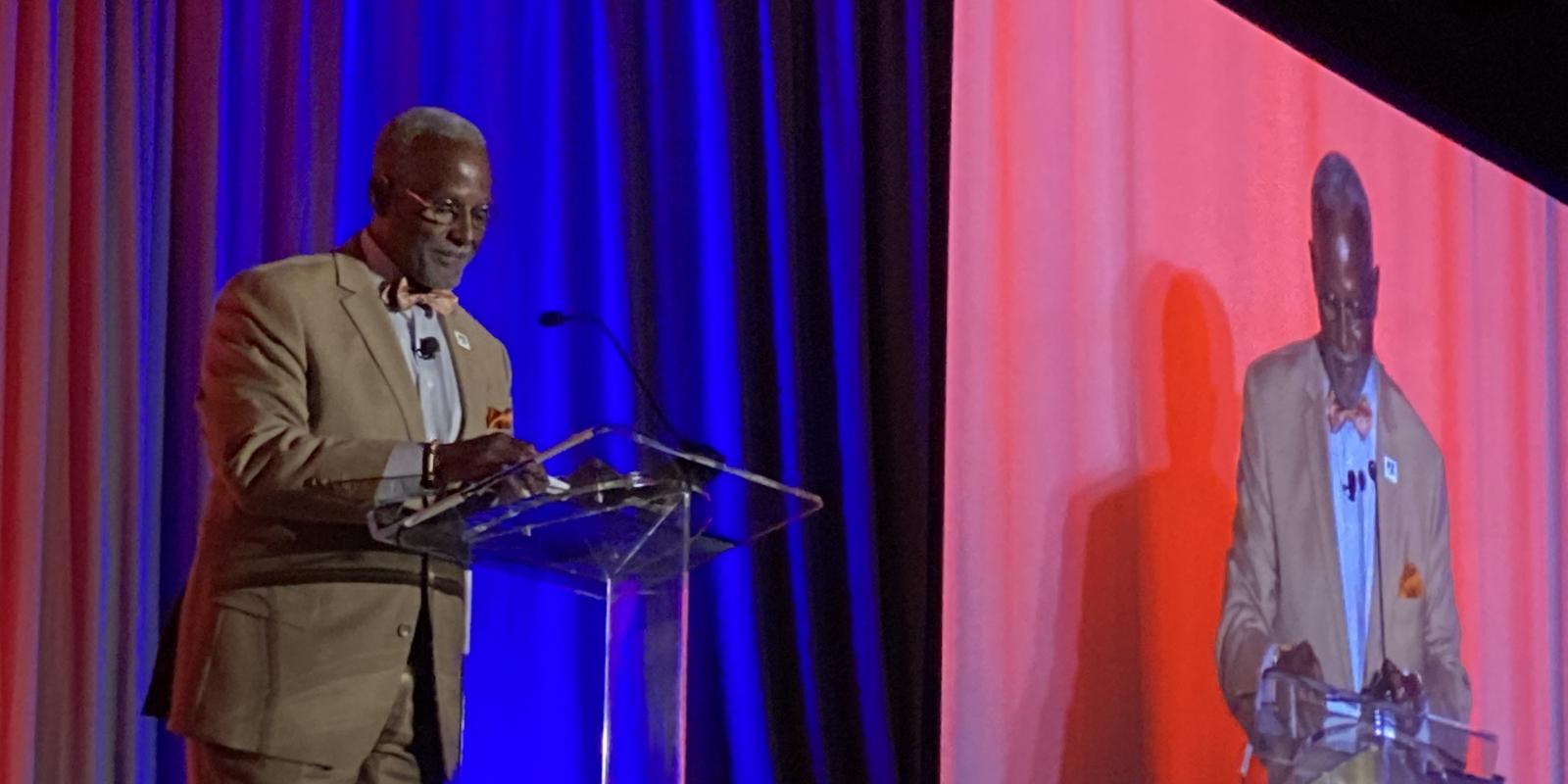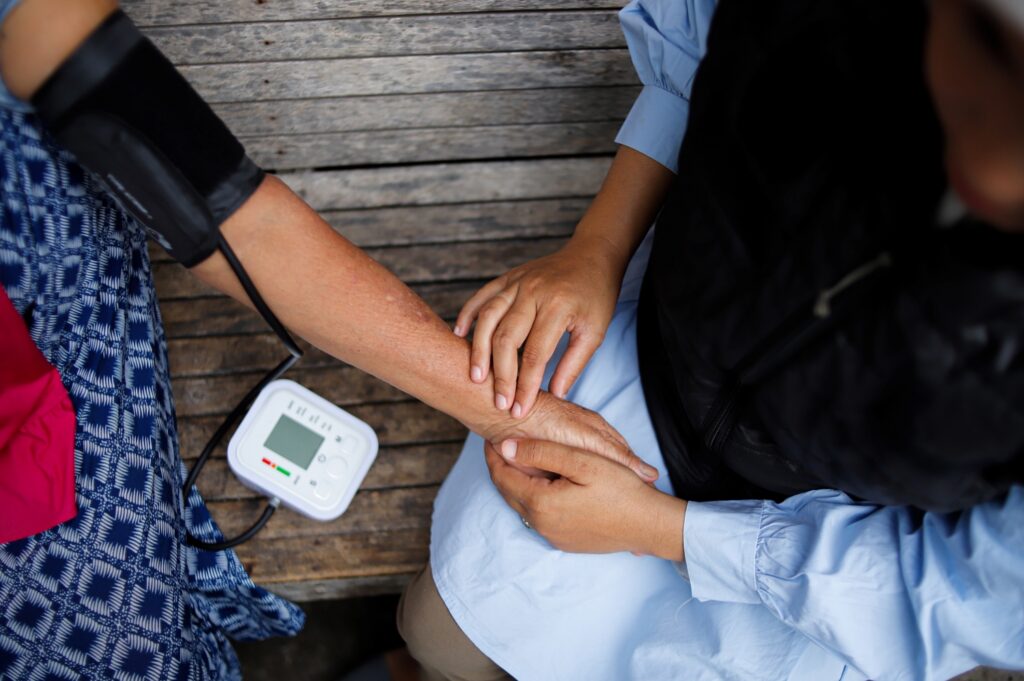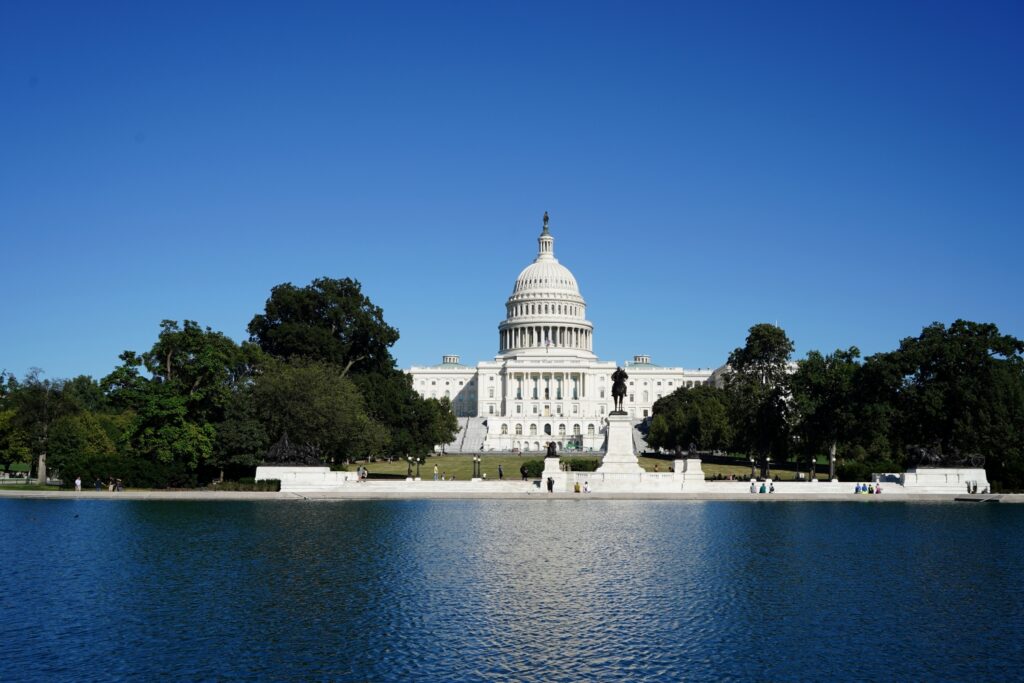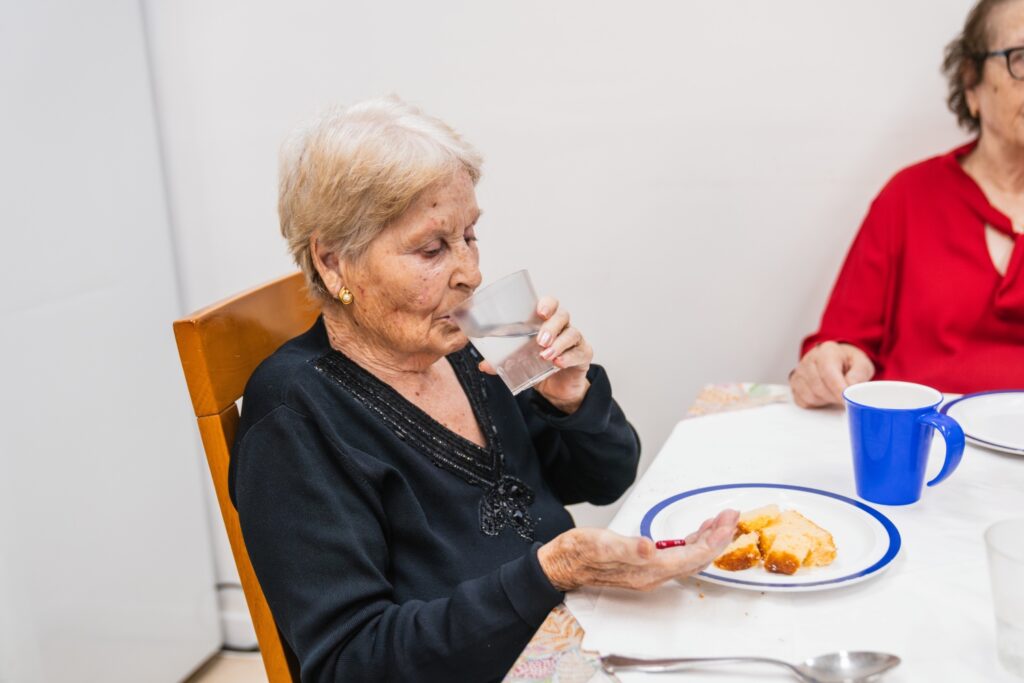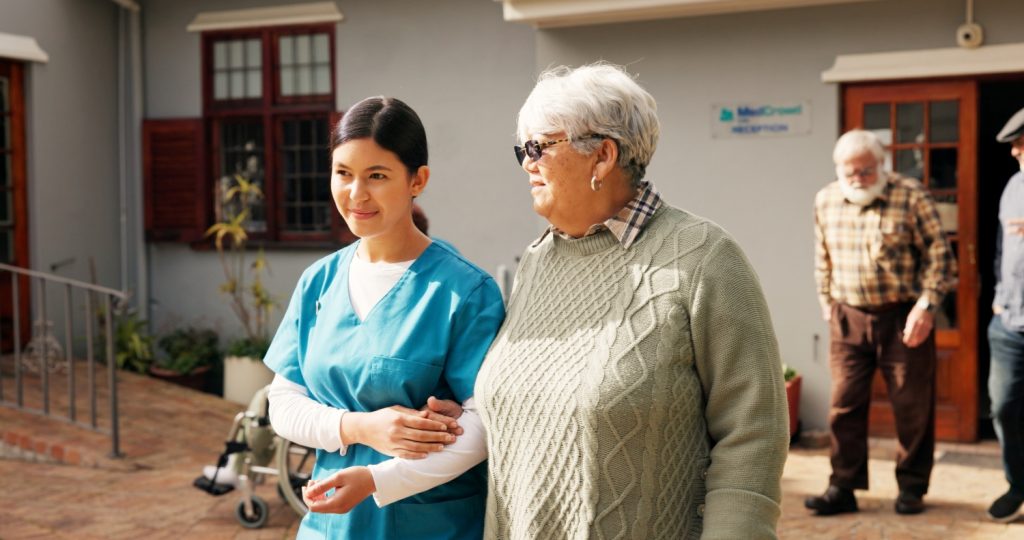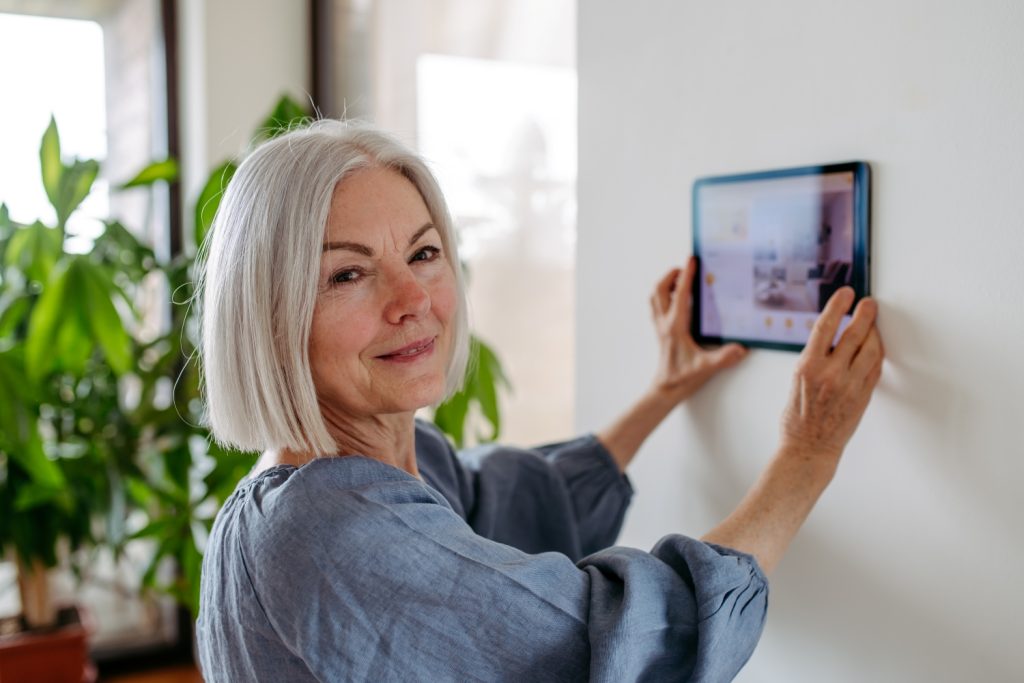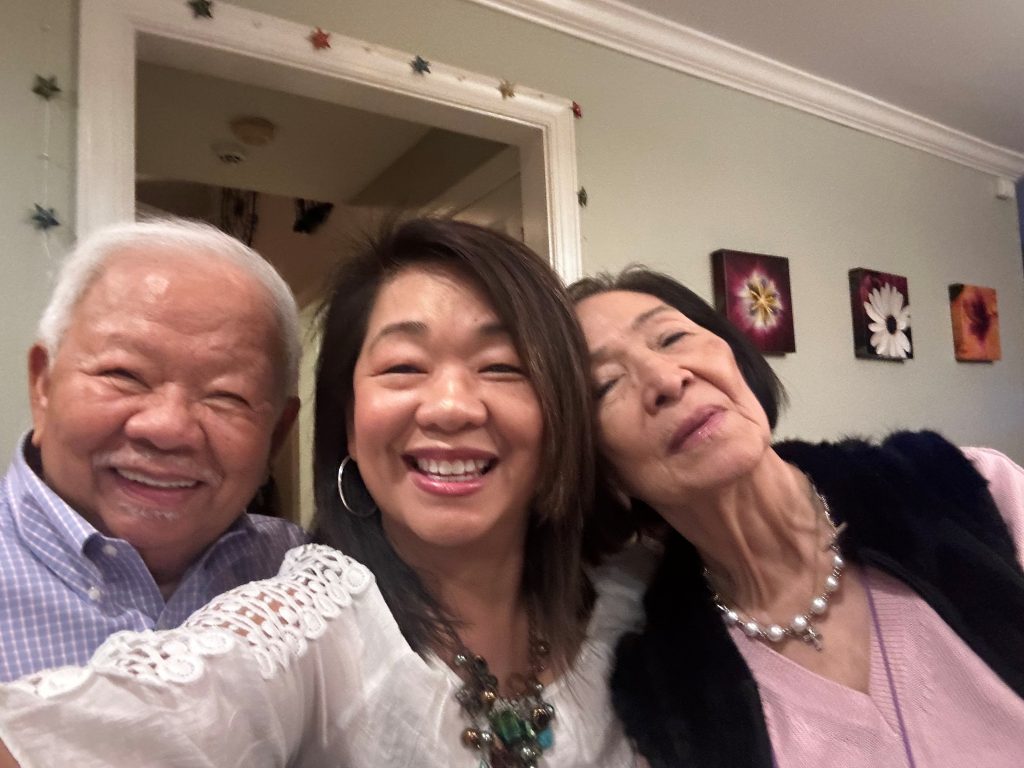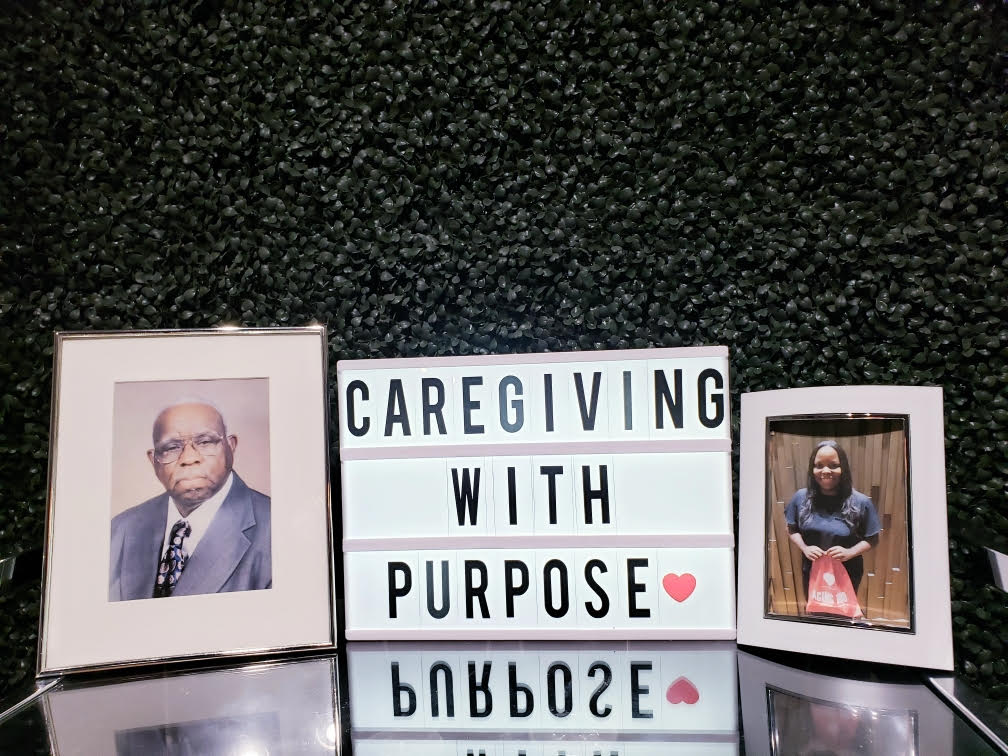Fresh off our first in-person, widely attended On Aging Conference, we’re inspired and refreshed and quite excited to have met and reconnected with so many members in 3-D for the first time in years. The conference theme was Advancing Economic Security, one of ASA’s key five pillars and much in evidence in multiple sessions. What follows are some of the inspiring nuggets extracted from On Aging 2022.
ASA’s now former Board of Directors Chair Michael Adams egged on the ASA member audience to champion the causes of older adults using their ASA membership, to join advocacy efforts and “together as ASA members and supporters, participants and stakeholders we can and will build a world in which all older adults are valued, supported and lifted up.”
President & CEO of ASA Peter Kaldes explained the decision to focus on Economic Security by laying out reasons the status quo is in desperate need of change, especially around racial equity, justice and economic security.
“This week we’re laser focused on advancing Economic Security. We chose this theme because the field has a tendency to focus on the biology of aging, much to the exclusion of economic security. But more importantly, we chose this focus because roughly 1 in 3 older adults are economically insecure; because it’s worse for people of color; and because it’s even worse for women. After attending On Aging, I know this group will gain the knowledge, networks and skills necessary to advance economic security,” Kaldes said.
“And when On Aging ends this week and we all head back home—one key lesson I hope you take with you is that as ASA members—we have profound value and extraordinary power.”
AARP Foundation President Lisa Marsh Ryerson echoed the opportunity, appreciating On Aging as a venue in which, “We come together to shake things up and to share the truth, call out deeply rooted problems, that were built, designed, and knowingly kept in place for far too long.”
Organize Locally, Involve Younger Generations
Keynoter Raymond Jetson, President and CEO of Catalyst at MetroMorphosis, agreed with Marsh Ryerson as he said the driver of the illusion of economic security is the totally misfunctioning national government, and that, “there are no broken systems, but they are operating exactly as they are designed”—to benefit those already in positions of power and wealth.
“We are in midst of racial and political division and if that’s not enough to wrestle with, we also have profound economic disparities,” said Jetson. Technology, globalization, the eroding value of the minimum wage, all have created and stimulated these disparities.
A whopping 83% of African American households and 90% of Latino households have insufficient funds to live out their years. Jetson thinks the answer is for the federal government to “rediscover the notion of ‘by the people, for the people.’ And people need to regain their own notion of government being of us, and for us, by supporting, joining, and participating in organizations focused on addressing the challenges of Social Security, Medicare and Medicaid.
‘Real economic security can be a part of our personal, community, national, and generational legacy.’
“I want to encourage you to organize locally, your Congress person should know who you are, and what is important to you,” Jetson said.
“We need to expand the earned income tax credit, improve livable wages and strategically address residential segregation. Because the pathway to economic security is home ownership,” he added.
As older Americans we must practice a brutal honesty about the systems, policies, and beliefs that led to this state of affairs. “Older adults have a responsibility not to live in isolation, we need to work across generations, to bring the wisdom of the young, recognize the increasing numbers of youth who are interested in justice and honest conversations.
“Because real economic security can be a part of our personal, community, national and generational legacy if we will do the hard work now to make this place better for generations to come,” said Jetson.
Invest in Youth, Become an Entrepreneur
Lamell McMorris, principal and head of Policy, Regulatory & Government Relations at Edward Jones helps clients prepare for retirement and had his own thoughts about what ASA members could do to spur change and even out the economic playing field.
“The pandemic was particularly hard on Blacks, Hispanics and women, accelerating the wealth gap and pushing the dream of a safe and comfortable retirement out of reach,” said McMorris.
Focused on spurring investment he founded Greenlining Realty USA to reverse redlining, which represents not just his personal aim, but his passion for bringing positive change to Edward Jones in his work revitalizing communities, and demonstrating how giving back can and will have a ripple effect.
Still, 40% of people saving for retirement report being behind schedule, which spotlights how more Americans need to plan for this chapter.
His key takeaways for action are to:
- Invest in youth, as education and development is key to reversing any downward trends. Edward Jones launched financial fitness economic education early on with the goal of impacting 1 million adults and youth by 2025. The program has already reached 25,000 students in high school.
- Advocate for a secure retirement for all Americans; by supporting the Secure and Strong Retirement Act of 2022, which passed the House of Representatives.
McMorris then sat down for a conversation with Elizabeth White, known for her book, “55, Underemployed, and Faking Normal,” about being laid off from a corporate job at 55 and her practical plan for anyone else facing the same situation to get back up on their feet.
“I represent and advocate for the people this has happened to, where the bottom falls out and you’re on food stamps. I didn’t expect to land here, but I love it,” White said.
Women face gender bias, racial discrimination, and now when they’re older, they also face ageism. But a lifetime of racial discrimination and gender bias shows up as lower wages, fewer opportunities for employment, and less to tap into for retirement. Which explains why so many Black women are starting businesses.
“When I landed I had to pivot, I had to be open to changing, I had to look at what can I do from where I sit? I knew I could write, I could do research, I could find kindred spirits online, I could publish a book on Amazon for $2,000,” she said, and so she did. Now she’s a sought after speaker and influencer in aging.
Paid Leave and Social Security
During a session on women’s economic security, Constituency Organizer at Caring Across Generations Aisha Adkins said the root cause for older women aging into poverty is racism, as it intersects with sexism, ableism and homophobia across a woman’s lifetime, placing older women of color at the highest risk for poverty. Also, as many are unpaid caregivers, women contribute less to retirement income (which negatively compounds over a lifetime), leading to an emotional impact that affects health.
Adkins stressed a need to invest in a paid care infrastructure, and in the Better Pay Better Care Act, which is stalled in the Senate, but would put an influx of dollars into home and community-based infrastructure and create 5,000 new direct care jobs. Also needed is federal paid leave, expanded affordable healthcare, Medicare and Medicaid coverage, including a reduction of out-of-pocket expenses.
‘A lifetime of racial discrimination and gender bias shows up as lower wages, fewer opportunities for employment, and less to tap into for retirement.’
Her co-panelist Tracey Gronniger, a Directing Attorney at Justice in Aging (JIA), focused on the importance of Social Security and Supplemental Security Income as the two critical pillars of support for older Americans. One third of older women depend upon Social Security for 80% of their income, said Gronniger.
“I’d like to plug the fact that caregiving is so devalued and undervalued because systemic racism is attached to it—mothers, nannies, childcare workers—all are highly devalued, America loves kids, but pays its caregivers like slave labor. I think there’s a reason for that, and it’s because it is women doing that work,” said Gronniger.
Members Coming Together to Lead Change
ASA’s new Economic Security Advisory Council, chaired by USC’s Maria Henke and paid family care advocate Lynn Feinberg convened at On Aging to strategize how members can collectively advance policies and programs to improve economic security for older women and people of color.
“The American Society on Aging brings together individuals who are each uniquely qualified to bring about significant societal reform. Together, we have the knowledge, resources and political will to bring about the changes needed to ensure that all older people, especially the most vulnerable, including women and people of color, can enjoy a secure, comfortable and dignified quality of life as they age,” said Henke.
“First and foremost, we will work to promote financial security for everyone,” she added. “This includes strengthening Social Security and Supplemental Security Income and making sure everyone can connect to resources accessible through the internet. We will also look more closely at retirement and pension policies.”
Henke emphasized that other important issues need to be addressed as well. For instance, who is concerned about people without employer plans or the special needs of those retiring with disabilities? What about the needs of both family and paid caregivers? These individuals carry out essential functions of society often provided for free or for very low wages. “As a society, are we OK with the status quo? Or do we want to do better?” Henke asked.
“I think we can all agree that as a nation that an expression of our self-worth is reflected in how we treat our elders and that includes ensuring that all older people have access to the basic of affordable health care, food and housing,” she said.
Care Can’t Wait
The final keynote was a poignant and witty combination call to action for labor issues and climate change.
Co-founder and Executive Director of the Domestic Workers Alliance Ai-jen Poo is always a subtly disarming speaker and continued this trend at On Aging, where she shared a keynote with environmentalist Bill McKibben and his dry sense of humor.
Poo paid silent tribute to all of those who died during the continuing pandemic, including her grandmother, and then launched into impassioned pleas that we redefine what it means to age and to care for others. “We have a window now, because of COVID, the country has awakened to how deeply entrenched caregiving is as invisible labor, but we can redefine aging and caregiving, we have agency now, our actions could make all the difference. The question is only whether we will act,” she said.
We were struggling before the pandemic, she said, as a Sandwich Generation, and the pressure felt prior to the pandemic was due to our failure as a country to provide paid family or medical leave. There are 52 million overstretched family caregivers, who are all expected to care on top of their fulltime jobs, they are both underpaid and unrecognized as care workers who struggle to survive on poverty wages with no benefits nor job security. The average pay? $18,000 per year. Such conditions create high turnover, and homecare deserts where people are desperately in need of services. And this is still referring to pre-pandemic times.
‘We have a window, but it won’t last forever, in less than a couple of months, we need you to engage.’
Within two months of the pandemic’s beginning already 3.5 million women were pushed out of the workforce. The media concentrated on these women caring for children, but millions more were caring for older adults, said Poo. Two years later with vaccines available and mandates lifting, people are heading back to work, but not caregivers, the vast majority of whom earn $15 an hour.
“Something has got to give, and thankfully, it is,” said Poo. “I’m looking at Josie Kalipeni [Family Values @ Work], Amber Christ [Justice in Aging], Rani Snyder [The John A. Hartford Foundation], we have all come together in the pandemic to say Care Can’t Wait.”
Poo stressed how caregivers should be considered essential infrastructure, and when Congress returns from break there will be a window of opportunity to pass legislation that carries some of these care priorities, including game-changing investments to home and community based care, to raise wages for this workforce, which represents one of the largest investments in jobs to directly benefit women and women of color in the United States.
“We have a window, but it won’t last forever, in less than a couple of months, we need you to engage, we need you to let your legislators know you want the Build Back Better plan to happen [even in a reduced state] and you want it to include care,” said Poo. From May 7 to Father’s Day she urged ASA members to participate in a month of activism, sharing their stories and posting with the hashtag: #CareCantWait.
Neither Can Climate
Environmentalist Bill McKibben has recently launched an activist organization called Third Act, with which he hopes to engage older adults in climate advocacy. He said it’s possible the older generation (especially Baby Boomers) had life go so well in their earlier years that they took for granted that we had gotten to where we needed to go.
Alas, that is far from the truth. Despite protecting democracy with the voting rights act, it is again under attack. And Earth Day was a great boon in 1970, with 20 million Americans pouring into the streets to demonstrate and take action, causing the passing of clean air and water acts. As a result, our air and water did become cleaner than it had been in years.
But we set ourselves up for a set of much deeper problems, as the planet is quickly unraveling. The real tragedy being that older Americans are leaving behind a planet in far worse shape than the one they enjoyed, said McKibben. He does not think it fair for Baby Boomers to leave this hard work to be solved by the 17-year-olds who are so passionately fighting the current climate fight, but that generation needs instead to get out there, because it also votes in far greater numbers and risks far less than do younger students and working age people when demonstrating.
The Third Act is striking out against the big banks that fund big oil. As 70% of financial assets belong to people older than age 60, McKibben said there’s power in their pulling those assets out of any banks supporting big oil.
Speaking of a recent demonstration in front of Chase in Boston, McKibben said, “It’s really good for younger folks to see older people taking action—these were people protecting their kids’ inheritance, the planet they will have to live on. But also it’s important for older adults to feel their own power.”
“Older people have advantages, a set of skills, some resources, and time, which is the one superpower the rest of society tends to lack. Taken together this can be extraordinary.
“Mobilizing people to take these challenges on is absolutely crucial, it’s possible, it’s and beautiful when it happens,” said McKibben.
Photo: Keynoter Raymond Jetson speaks on The Illusion of Economic Security at On Aging 2022.
Photo Credit: Kay Link

